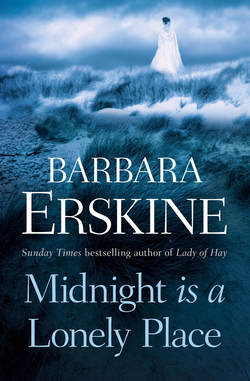Читать книгу Midnight is a Lonely Place - Barbara Erskine - Страница 10
III
ОглавлениеThe tide crept higher, drawn inescapably onward by the full moon lost behind ten thousand feet of towering cumulus. Softened by the sleet in the ice-cold wind the sand grew muddy and pliant beneath the questing fingers of water. The shingle bank was deserted, lonely in the darkness. As the water lapped the stones in silence, gently probing, a lump of sand broke away from the mound behind it and subsided into the blackness of the water. Behind it, a further fissure formed. Matted grass strained and tore, a network of fine roots pulling, clinging, interlocked. The grass hissed before the wind, grains of sand flicked into the air by a gust, veering round into the east. Now the wind and the tide were of one mind and, inexorably, the water crept forward.
The small pocket of clay, left on the floodplain of the River Storwell after the glaciers had melted, had two thousand years ago, been at the bottom of a freshwater marsh. Long ago drained, the marsh had gone and the rich pasture which replaced it had turned, over the centuries, to arable then to scrub and to woodland, and then, as the sea advanced inexorably on the eastern coasts of England, to shingle beach. Now, after nearly two millennia of change and of erosion the soil, sand and gravel which still separated the clay from the air and the light was only centimetres thick.
